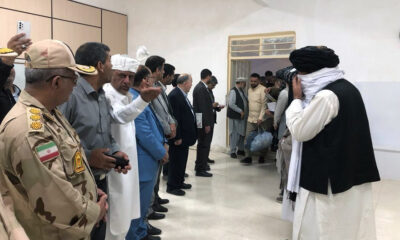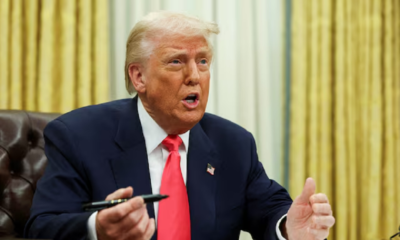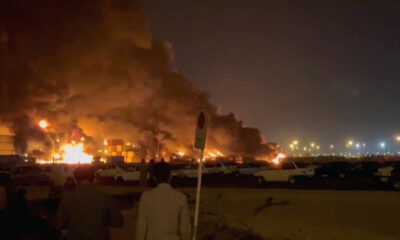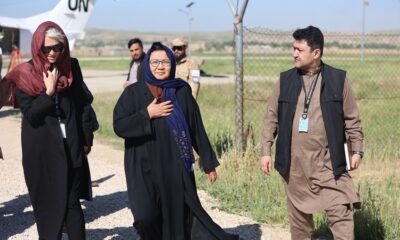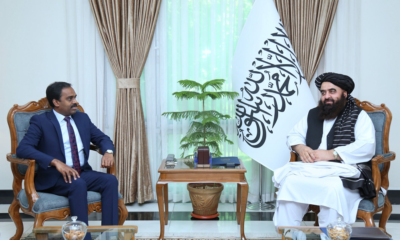Latest News
Pakistan ‘does not want armed conflict with Afghanistan’
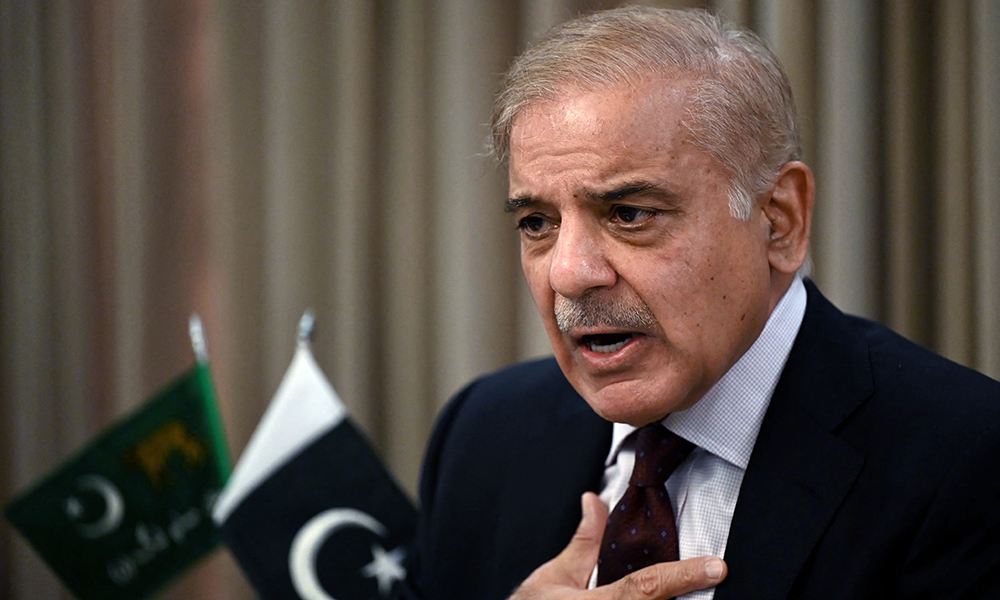
Following Pakistan’s airstrikes in Paktika and Khost provinces on Monday, Pakistan’s Prime Minister Shehbaz Sharif said Islamabad will not tolerate any form of cross border terrorism.
He said during a cabinet meeting on Wednesday: “We will not tolerate any form of terrorism from across the borders under any circumstances.”
Sharif emphasized that Pakistan’s borders are a red line against terrorism and that “terrorism must be eradicated.”
In the past year, Pakistan has consistently accused the Islamic Emirate of Afghanistan (IEA) of supporting terrorist groups such as the Tehreek- e-Taliban Pakistan (TTP) and has repeatedly urged the IEA to take serious action against this group and hand over its leaders to Pakistan.
However, the IEA has consistently denied Pakistan’s allegations.
Pakistan’s Defense Minister Khawaja Asif meanwhile says his country does not want to engage in an armed conflict with Afghanistan.
“Force is the last resort. We do not want to have an armed conflict with Afghanistan,” Asif said, speaking exclusively to VOA.
However, he warned that Islamabad could block the corridor it provides to landlocked Afghanistan for trade with India, saying Pakistan has the right to stop facilitating Kabul if it fails to curb anti-Pakistan terrorists operating on Afghan soil, VOA reported.
“If Afghanistan treats us like an enemy, then why should we give them a trade corridor?” he said.
This comes after Monday’s airstrikes against alleged militant hideouts in Paktika and Khost provinces in Afghanistan following an insurgent attack by Tehreek-e-Taliban (TTP) in Pakistan’s Waziristan on Saturday.
Pakistan claims Afghanistan’s leaders are not cracking down on TTP in the country – a claim the IEA rejects.
Five women and three children were killed in Monday’s airstrikes. IEA spokesperson Zabihullah Mujahid meanwhile warned of serious consequences earlier this week.
“Pakistan should not blame Afghanistan for the lack of control, incompetence and problems in its own territory. Such incidents can have very bad consequences, which will be out of Pakistan’s control,” Mujahid said in a statement.
Following the airstrikes, security forces along the Durand Line retaliated and targeted Pakistani military posts with “heavy weapons.”
Since Tuesday, a tense calm has prevailed along the 2,600-kilometer-long border.
Experts meanwhile say that while the IEA does not have the military might to attack Pakistan, the Islamic Emirate could use unconventional means, including actively supporting anti-Pakistan militants, to respond if aggression from Islamabad grows.
“If they can harm us, then we’ll be forced to [retaliate],” Asif said, while expressing hope that Afghanistan would meet the “single demand” of reining in TTP, preventing the need for future military strikes from Pakistan.
Reacting to Monday’s strikes, the U.S. State Department urged Pakistan and Afghan Taliban to take steps to address differences.
“We urge the Taliban to ensure that terrorist attacks are not launched from Afghan soil, and we urge Pakistan to exercise restraint and ensure civilians are not harmed in their counterterrorism efforts,” deputy spokesperson Vedant Patel told the media during a regular press briefing Monday.
Meanwhile, former Pakistani information minister Jan Achakzai warns that if the IEA keeps attacking Pakistan, Islamabad may seize the “Wakhan corridor.”
Achakzai wrote on his social media platform X on Wednesday that Pakistan would swiftly enter Afghanistan and annex the Wakhan corridor to gain access to the Central Asian countries.
The Wakhan Corridor is a narrow strip of land in northeastern Afghanistan, extending between Tajikistan, Pakistan, and China. It serves as a buffer zone between Afghanistan and its neighbors.
The Wakhan Corridor has historically been a significant trade route connecting Central Asia with South Asia and the Middle East. It played a crucial role in the ancient Silk Road network.
Latest News
Afghanistan and Iran swap prisoners at Milak border crossing
At the same time, two Iranians serving sentences in Afghan prisons were repatriated to Iran.
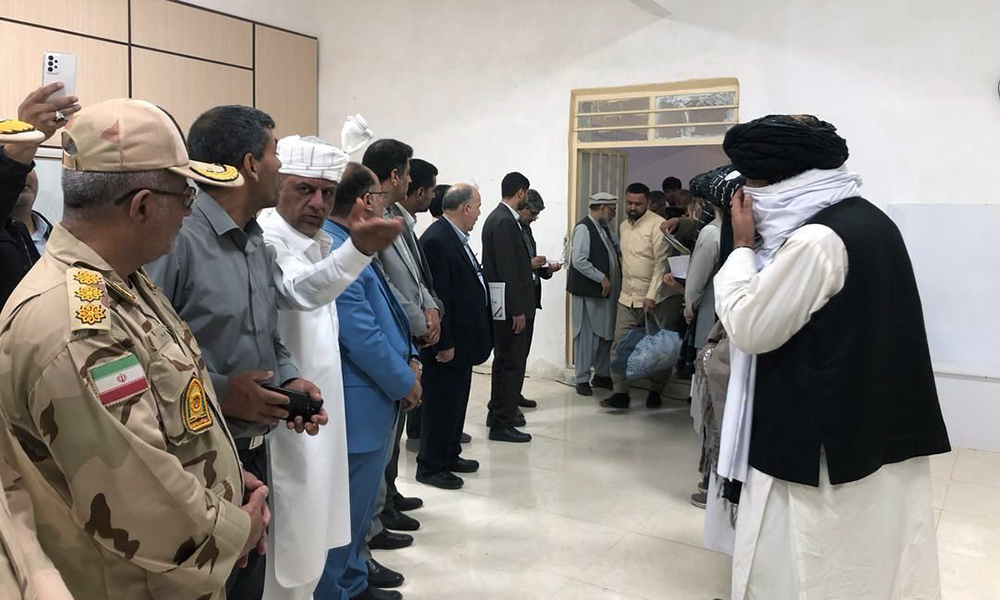
Afghanistan and Iran exchanged prisoners at the Milak border crossing in south-eastern Iran on Sunday, officials confirmed.
According to IRNA, almost 200 Afghan prisoners held in Iranian prisons in Tehran, Sistan and Baluchestan and Isfahan were handed over to Afghan authorities at the Milak border in Sistan and Baluchestan.
At the same time, two Iranians serving sentences in Afghan prisons were repatriated to Iran.
Iran’s Deputy Justice Minister for Human Rights and International Affairs, Askar Jalalian, said recently that more than 4,500 foreign nationals detained in Iran had been sent to their home countries.
Latest News
UNAMA chief visits northern Afghanistan, meets local officials including women
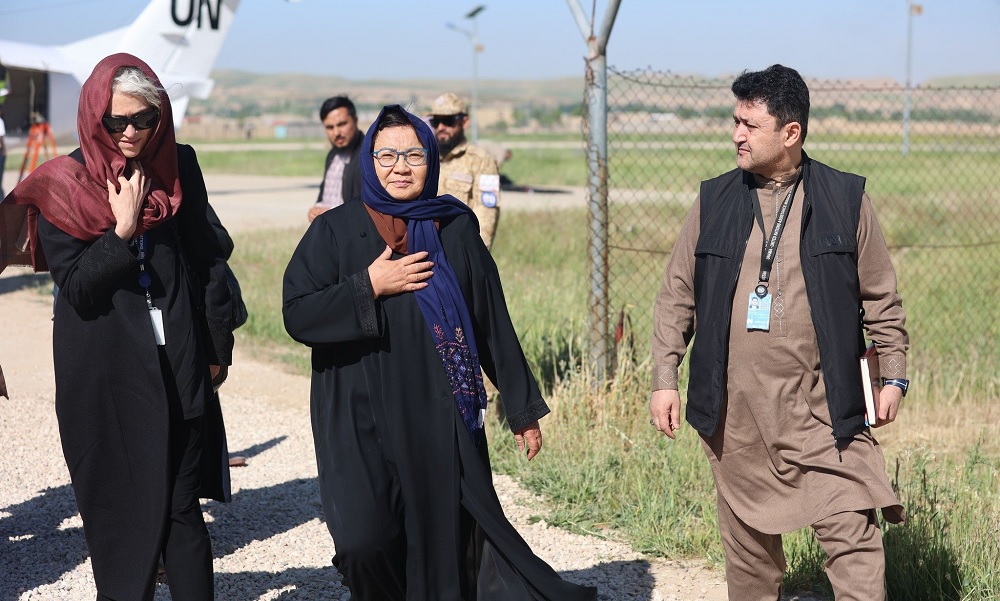
Roza Otunbayeva, Head of the United Nations Assistance Mission in Afghanistan (UNAMA), recently visited the city of Maimana in northern Afghanistan, where she met with local officials, entrepreneurs, and UN staff.
UNAMA wrote on its Facebook page on Sunday, that during the visit, entrepreneurs — including women — met with Otunbayeva, and requested support to facilitate access to new markets, particularly in Uzbekistan.
UNAMA further stated that among these entrepreneurs was a group of women who, with the support of the United Nations Development Programme (UNDP), had established a tailoring workshop.
They expressed their appreciation for the support received and spoke about the significant growth and development of their business.
UNAMA added that the organization remains committed to promoting economic opportunities and empowering Afghan communities, especially women.
Latest News
Senior Indian official meets with FM Muttaqi in Kabul
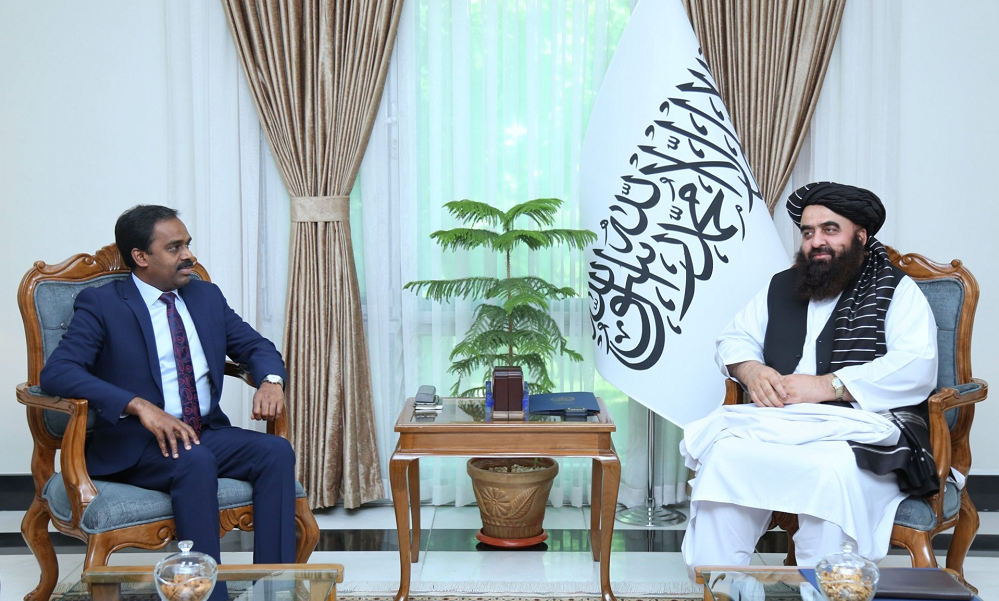
Anand Prakash, head of the Afghanistan, Iran and Pakistan Division of the Indian Ministry of External Affairs, met with Acting Foreign Minister Amir Khan Muttaqi in Kabul for talks on various issues.
According to a press release issued Sunday by the Afghan Foreign Ministry, bilateral political relations, trade, transit and recent political developments in the region were discussed in the meeting.
Muttaqi stressed the need for the expansion of diplomatic and economic relations between the two countries and explained that Afghanistan currently offers favorable opportunities for investment. He said Indian investors should take advantage of these opportunities.
He also said that facilities should be created for the movement of people between Afghanistan and India and the issuance of visas for medical purposes, students and businessmen should return to normal.
Meanwhile, Prakash said that relations with Afghanistan are important for India and he hopes that these relations will expand further in various fields.
He stressed that India will continue its cooperation with Afghanistan and wants to invest in some infrastructure projects and restart projects that were paused for some time.
The two sides also emphasized the expansion of relations, the exchange of delegations, visa facilitation and bilateral cooperation.
-

 Sport5 days ago
Sport5 days agoSri Lanka A defeats Afghanistan A by 4 wickets in Abu Dhabi
-

 Business5 days ago
Business5 days agoAfghanistan’s growth prospects remain uncertain amid global uncertainty: World Bank report
-

 Latest News4 days ago
Latest News4 days agoAWCC activates new site in Nangarhar’s Kuz Kunar district
-

 Latest News4 days ago
Latest News4 days agoTarig Ali Bakheet and Japan’s Deputy Foreign Minister discuss Afghanistan’s situation
-

 Business4 days ago
Business4 days agoPakistan’s deputy PM discusses Trans-Afghan Railway Line project with Uzbek FM
-

 Climate Change5 days ago
Climate Change5 days agoPowerful earthquake of 6.2 magnitude shakes Istanbul
-

 Latest News5 days ago
Latest News5 days agoSpecial meeting will be held to launch Afghanistan–Russia joint commission, says Kabulov
-

 Latest News3 days ago
Latest News3 days agoAfghanistan’s medicine output reaches 900 types: Pharma Union


